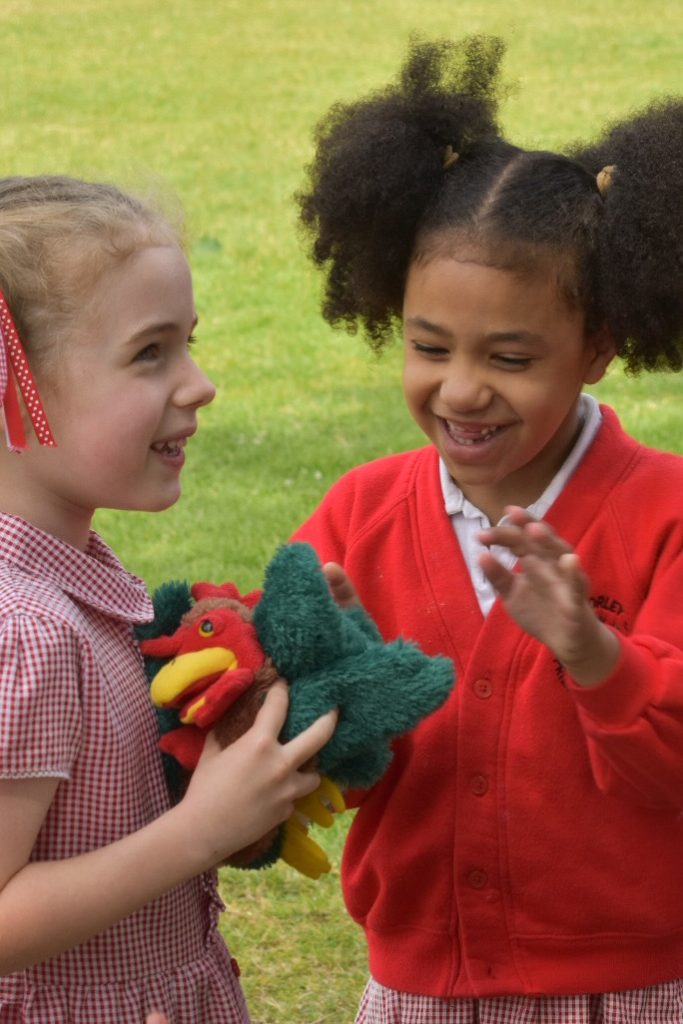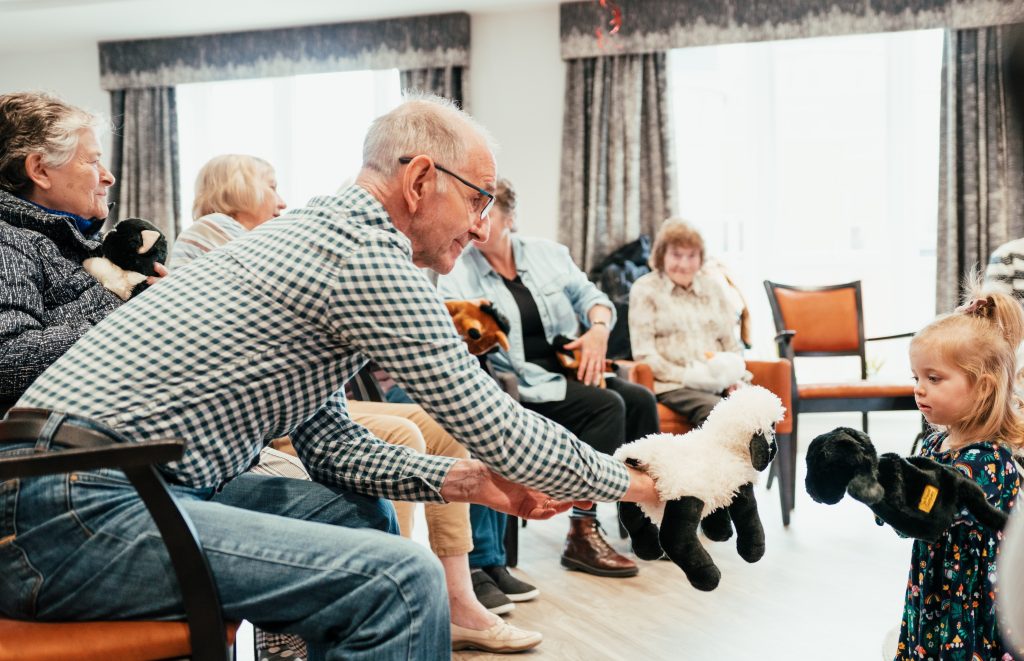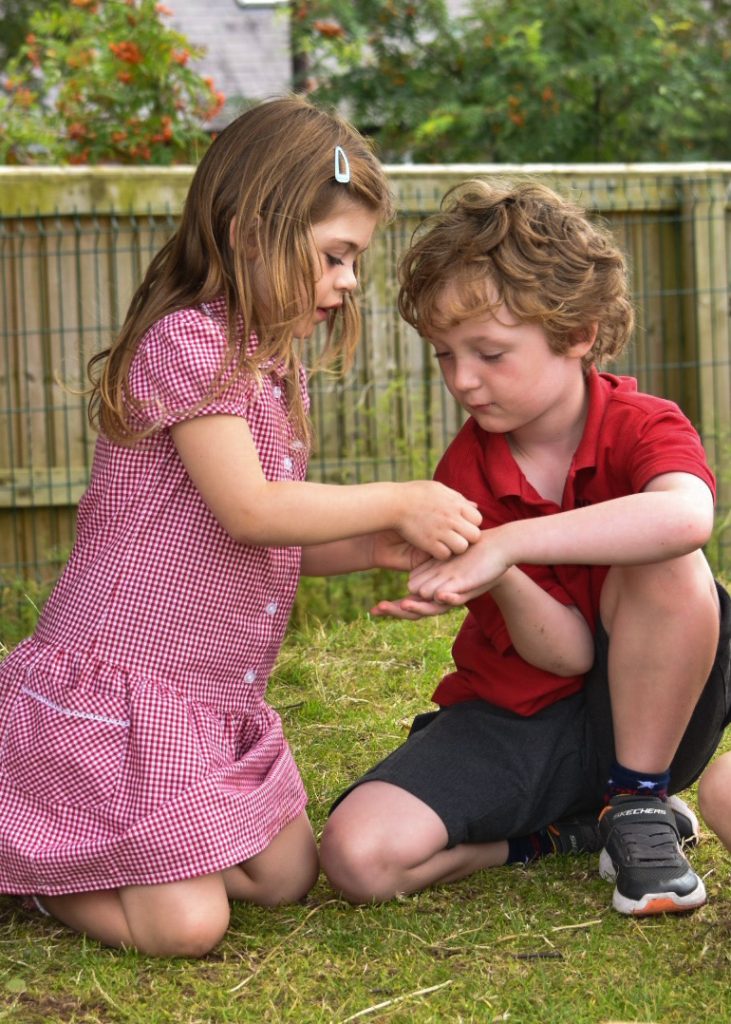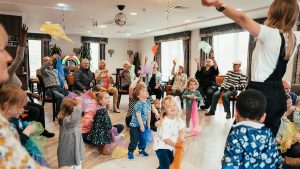Amanda Wrigley
I have been a primary school teacher for 20 years, including some time as a school special educational needs coordinator and an assistant headteacher. I saw the incredible impact of music classes on children and how music and arts provide inclusive, stimulating activities. I decided to start ‘Live the Beat’ to deliver music classes to children in diverse education settings. Here I describe two projects developed as part of my business.
Promoting learning for children with additional needs
I deliver fully inclusive music classes to over 300 preschool children each week across 12 settings in Cheshire, England. I also facilitate music intervention for a group of primary school children with special educational needs. I use music to help children who have, for example, autism, speech and language difficulties, or who learn English as an additional language to develop a wide range of skills.
A typical lesson starts with everyone sitting together in a circle to sing our welcome song. This helps learners feel included and signals the start of the session. We use a tidy-up time and a goodbye song to end sessions. Familiar routines like this throughout the class are important because they give the children a sense of safety and comfort in order for learning to take place. In the session, I structure musical exploration using a wide range of props and musical instruments.
I plan the sessions in advance but use a child-initiated approach, especially for those with special educational needs. For example, if a child actively engages with the class for the first time, I might change the next song or prop to something I think will keep their attention a bit longer. This could mean using a sensory object or a toy that interests them like a car or animal.

The sessions encourage children to share their learning with staff, peers, and families. For example, Jake1 is autistic and was non-verbal before starting music classes. His vocabulary grows by 3 to 4 words every week through his love of music.
Amanda, don’t stop what you’re doing! Keep sharing it with as many children as you can! What you have given my boy is incredible. (Jake’s mum)
The music is engaging for children with special educational needs. Early years practitioners have made comments such as:
Well, I’ve never seen him sit and focus like that before!
She has come on so much since doing your classes!
All children should be in the room throughout the class. They can decide if, how and when they join in. For example, they may start by humming as a way of joining in or just looking over at what the rest of the group is doing. Without exception, all the children with special educational needs have developed their communication, social skills, and ability to manage emotions.
I work with school staff to complete an education needs assessment grid that we fill out before the sessions. This helps me analyse children’s development and supports my planning and practice.
As a result of the impact these sessions have had on the early years children, I have started a similar, age-appropriate programme for children in the first three years of a local primary school. Again, I assess each child’s needs beforehand and I have been thrilled to see how they have all responded.
The most surprising thing is seeing how children who speak English as an additional language engage with the class. When people enjoy and make music together, it brings a sense of involvement and social engagement. That is what these children need when they are trying to navigate new surroundings, routines, and language.
I am now working with the chair of governors for another school in a disadvantaged area. The school receives pupil premium funding – a measure of low income in the UK that pays for free school meals and other resources – for about 80% of the children in some classes. We are applying for additional funding to deliver the music classes to the school’s most vulnerable children (e.g., those who are in alternative care, have mental health issues, are involved with social services or are refusing to go to school). After COVID-19 lockdowns, an increasing number of children found it difficult to return to school, especially if they experience anxiety or have special educational needs or disabilities.

Working intergenerationally
Ready Generations Charity runs the UK’s first fully integrated nursery within the care village of Belong, Chester. The Nursery in Belong is unique as it has been designed to encourage care, learning and connections for multiple generations. Children and residents interact in planned intergenerational experiences, as well as through informal encounters. I was excited by this concept in a community where children and adults of all ages can benefit from fostering warm, cross-generational relationships. I believe music can be at the heart of this.
The project began with six ‘Music and Movement’ sessions called ‘Harmony Wheels’, funded by Arts Council England’s ‘Curious Minds’ fund. The staff and management at Ready Generations and Belong saw the impact and potential of this work for all the stakeholders and committed to funding ongoing weekly musical ‘Stay and Play’ sessions. These are attended by nursery children, families from the local community, elderly tenants living independently in apartments, and elderly residents receiving care because they live with dementia. Adults with learning difficulties and family members of the residents also attend. I believe the greatest benefit of participating in the sessions is the shared learning experiences.
I offer as many opportunities as possible for generations to interact. The children develop their understanding of others, empathy, communication and listening skills, social interaction, self-awareness and confidence. The older people develop friendships and connections, self-esteem and worth, leadership and teaching skills and physical activity. Music strengthens bonds and is inclusive for individuals, making it the perfect art for an intergenerational class.
Don’t we have a lovely time when Amanda’s here? (Doris,1 a resident in the care village living with dementia)
At the residents’ request, I began leading an intergenerational choir in Spring 2023 called the Sankofa Songsters. We develop work around body percussion, singing and storytelling. Over 50 individuals of all ages take part.
Although I plan both the ‘Stay and Play’ and choir sessions in advance, I use a child-led and resident-led approach. When a resident recently started singing ‘She’ll be coming round the mountain’, I asked the children to decide what we should do to accompany that. They decided we should use ribbons and spin around. One boy led everyone as we marched around the residents’ chairs creating a fantastic atmosphere. The sessions bring a sense of shared joy, smiles, laughter, and beautiful interactions between young and old. I am interested in the residents being empowered to become ‘teachers’ rather than only having a passive watching experience.
Certain resources that I use will spark interaction and communication. These are often life-like props such as soft toys, puppets, and bees, and the adults will spontaneously role play for their own fun and for the children’s delight.
The work has an impact beyond musical learning. Children become better at developing relationships, empathy and understanding others. The older people are empowered to take on leadership roles, make progress in their singing, use their voices for performance, and take ownership of how they want sessions run.

Where next?
My experience in the primary classroom gave me the skills and knowledge to deliver these projects. I constantly reflect on what works and how I can improve my skills to adapt to support individual learners and new situations. I am participating in a research project at the Universities of Central Lancashire and Chester to analyse my practice. I unpick what is most and least effective, learn, and change my practice. I am in conversation with researchers at other universities regarding how to bring more research into my work.
I am always looking for new funding opportunities for Live the Beat and ways to expand its reach. Future activities include training teaching assistants to better understand their role in the music classes, why we do certain activities, and how to build on sessions throughout the week. They can then empower children with special educational needs to share their learning and introduce the games and songs to their peers to build confidence, language and leadership skills. I can’t wait to see how this progresses!
Next year I will start five more care home intergenerational choirs, linking each one with an educational setting. Such intergenerational work is important for children who are vulnerable to difficult situations. I hope to invite the primary school children I work with and their families to visit the intergenerational care home where I lead the choir to share learning and interact socially. Ultimately, I want to develop and sell a resource package. Overall, it is an exciting time as I can see real impact from this work with all the young and older people I work with.
[1] Names have been changed for confidentiality reasons.
Amanda Wrigley is the founder and director of Live the Beat.
She can be contacted through her website: https://www.livethebeat.co.uk/

